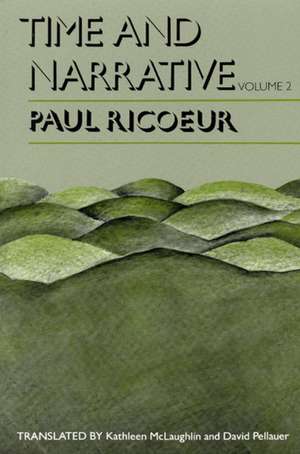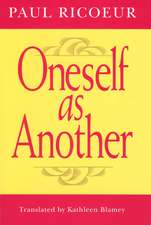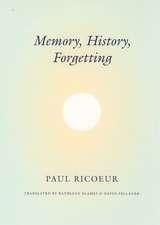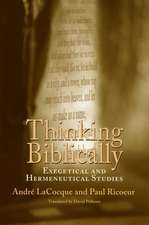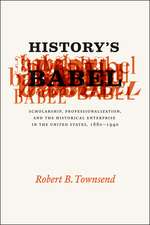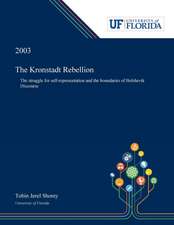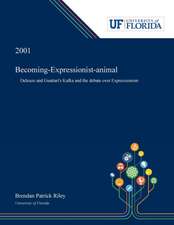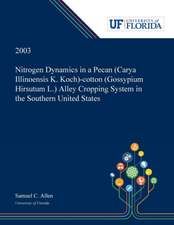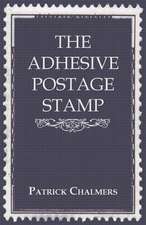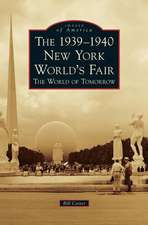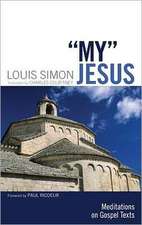Time and Narrative, Volume 2: Emersion: Emergent Village resources for communities of faith
Autor Paul Ricoeur, Kathleen Mclaughlin, David Pellaueren Limba Engleză Paperback – 31 aug 1990
In volume 1 of this three-volume work, Paul Ricoeur examined the relations between time and narrative in historical writing. Now, in volume 2, he examines these relations in fiction and theories of literature.
Ricoeur treats the question of just how far the Aristotelian concept of "plot" in narrative fiction can be expanded and whether there is a point at which narrative fiction as a literary form not only blurs at the edges but ceases to exist at all. Though some semiotic theorists have proposed all fiction can be reduced to an atemporal structure, Ricoeur argues that fiction depends on the reader's understanding of narrative traditions, which do evolve but necessarily include a temporal dimension. He looks at how time is actually expressed in narrative fiction, particularly through use of tenses, point of view, and voice. He applies this approach to three books that are, in a sense, tales about time: Virgina Woolf's Mrs. Dalloway; Thomas Mann's Magic Mountain; and Marcel Proust's Remembrance of Things Past.
"Ricoeur writes the best kind of philosophy—critical, economical, and clear."—Eugen Weber, New York Times Book Review
"A major work of literary theory and criticism under the aegis of philosophical hermenutics. I believe that . . . it will come to have an impact greater than that of Gadamer's Truth and Method—a work it both supplements and transcends in its contribution to our understanding of the meaning of texts and their relationship to the world."—Robert Detweiler, Religion and Literature
"One cannot fail to be impressed by Ricoeur's encyclopedic knowledge of the subject under consideration. . . . To students of rhetoric, the importance of Time and Narrative . . . is all too evident to require extensive elaboration."—Dilip Parameshwar Gaonkar, Quarterly Journal of Speech
Ricoeur treats the question of just how far the Aristotelian concept of "plot" in narrative fiction can be expanded and whether there is a point at which narrative fiction as a literary form not only blurs at the edges but ceases to exist at all. Though some semiotic theorists have proposed all fiction can be reduced to an atemporal structure, Ricoeur argues that fiction depends on the reader's understanding of narrative traditions, which do evolve but necessarily include a temporal dimension. He looks at how time is actually expressed in narrative fiction, particularly through use of tenses, point of view, and voice. He applies this approach to three books that are, in a sense, tales about time: Virgina Woolf's Mrs. Dalloway; Thomas Mann's Magic Mountain; and Marcel Proust's Remembrance of Things Past.
"Ricoeur writes the best kind of philosophy—critical, economical, and clear."—Eugen Weber, New York Times Book Review
"A major work of literary theory and criticism under the aegis of philosophical hermenutics. I believe that . . . it will come to have an impact greater than that of Gadamer's Truth and Method—a work it both supplements and transcends in its contribution to our understanding of the meaning of texts and their relationship to the world."—Robert Detweiler, Religion and Literature
"One cannot fail to be impressed by Ricoeur's encyclopedic knowledge of the subject under consideration. . . . To students of rhetoric, the importance of Time and Narrative . . . is all too evident to require extensive elaboration."—Dilip Parameshwar Gaonkar, Quarterly Journal of Speech
Din seria Emersion: Emergent Village resources for communities of faith
-
 Preț: 176.91 lei
Preț: 176.91 lei - 9%
 Preț: 351.24 lei
Preț: 351.24 lei -
 Preț: 148.18 lei
Preț: 148.18 lei - 16%
 Preț: 136.91 lei
Preț: 136.91 lei -
 Preț: 216.80 lei
Preț: 216.80 lei -
 Preț: 183.74 lei
Preț: 183.74 lei -
 Preț: 139.64 lei
Preț: 139.64 lei - 9%
 Preț: 350.48 lei
Preț: 350.48 lei - 18%
 Preț: 346.58 lei
Preț: 346.58 lei -
 Preț: 122.61 lei
Preț: 122.61 lei - 8%
 Preț: 565.06 lei
Preț: 565.06 lei -
 Preț: 229.91 lei
Preț: 229.91 lei - 9%
 Preț: 350.30 lei
Preț: 350.30 lei -
 Preț: 183.02 lei
Preț: 183.02 lei -
 Preț: 312.08 lei
Preț: 312.08 lei -
 Preț: 144.98 lei
Preț: 144.98 lei - 13%
 Preț: 288.90 lei
Preț: 288.90 lei -
 Preț: 130.14 lei
Preț: 130.14 lei -
 Preț: 162.04 lei
Preț: 162.04 lei -
 Preț: 208.31 lei
Preț: 208.31 lei - 16%
 Preț: 104.33 lei
Preț: 104.33 lei -
 Preț: 140.57 lei
Preț: 140.57 lei -
 Preț: 225.11 lei
Preț: 225.11 lei -
 Preț: 176.49 lei
Preț: 176.49 lei -
 Preț: 101.43 lei
Preț: 101.43 lei -
 Preț: 273.93 lei
Preț: 273.93 lei -
 Preț: 92.35 lei
Preț: 92.35 lei -
 Preț: 155.75 lei
Preț: 155.75 lei -
 Preț: 155.99 lei
Preț: 155.99 lei -
 Preț: 184.94 lei
Preț: 184.94 lei -
 Preț: 103.30 lei
Preț: 103.30 lei -
 Preț: 179.04 lei
Preț: 179.04 lei - 12%
 Preț: 251.60 lei
Preț: 251.60 lei -
 Preț: 115.82 lei
Preț: 115.82 lei -
 Preț: 316.39 lei
Preț: 316.39 lei -
 Preț: 307.53 lei
Preț: 307.53 lei -
 Preț: 533.04 lei
Preț: 533.04 lei - 8%
 Preț: 309.90 lei
Preț: 309.90 lei - 18%
 Preț: 419.87 lei
Preț: 419.87 lei -
 Preț: 94.22 lei
Preț: 94.22 lei - 18%
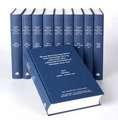 Preț: 2266.03 lei
Preț: 2266.03 lei - 8%
 Preț: 358.23 lei
Preț: 358.23 lei - 8%
 Preț: 344.34 lei
Preț: 344.34 lei - 8%
 Preț: 563.23 lei
Preț: 563.23 lei -
 Preț: 271.66 lei
Preț: 271.66 lei - 6%
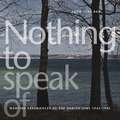 Preț: 323.11 lei
Preț: 323.11 lei -
 Preț: 140.62 lei
Preț: 140.62 lei -
 Preț: 294.19 lei
Preț: 294.19 lei -
 Preț: 163.52 lei
Preț: 163.52 lei
Preț: 122.96 lei
Preț vechi: 146.38 lei
-16% Nou
Puncte Express: 184
Preț estimativ în valută:
23.53€ • 24.53$ • 19.59£
23.53€ • 24.53$ • 19.59£
Carte disponibilă
Livrare economică 14-28 decembrie
Livrare express 30 noiembrie-06 decembrie pentru 17.84 lei
Preluare comenzi: 021 569.72.76
Specificații
ISBN-13: 9780226713342
ISBN-10: 0226713342
Pagini: 216
Dimensiuni: 149 x 229 x 12 mm
Greutate: 0.23 kg
Ediția:1
Editura: University of Chicago Press
Seria Emersion: Emergent Village resources for communities of faith
Locul publicării:United States
ISBN-10: 0226713342
Pagini: 216
Dimensiuni: 149 x 229 x 12 mm
Greutate: 0.23 kg
Ediția:1
Editura: University of Chicago Press
Seria Emersion: Emergent Village resources for communities of faith
Locul publicării:United States
Notă biografică
Paul Ricoeur is the John Nuveen Professor Emeritus in the Divinity School, professor of philosophy, and a member of the Committee on Social Thought at the University of Chicago. He was for many years dean of the Faculty of Letters and Human Sciences at the University of Paris X (Nanterre).
Cuprins
Preface
Part III: The Configuration of Time in Fictional Narrative
1. The Metamorphoses of the Plot
2. The Semiotic Constraints of Narrativity
3. Games with Time
4. The Fictive Experience of Time
Conclusion
Notes
Index
Part III: The Configuration of Time in Fictional Narrative
1. The Metamorphoses of the Plot
2. The Semiotic Constraints of Narrativity
3. Games with Time
4. The Fictive Experience of Time
Conclusion
Notes
Index
